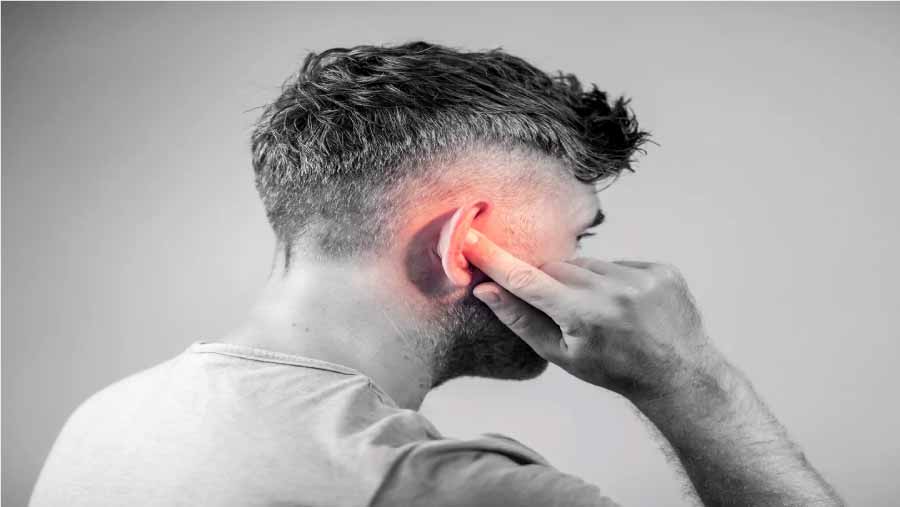There are several factors that can cause tinnitus, including blood vessel disorders, migraines, anemia, and thyroid problems. People with chronic medical conditions may also be affected. These conditions can cause increased blood flow, which can cause tinnitus. There are also self-help groups for people suffering from tinnitus.
Tinnitus management
Managing tinnitus is often a challenge for tinnitus sufferers, but there are ways to make the situation more tolerable. There are several treatment options, including medication, therapy, and a variety of lifestyle modifications. The goal of tinnitus therapy is to change the patient’s response to noise causing noise. This involves the use of relaxation techniques, journals and tasks to help the patient adapt to sounds. While this therapy is usually short-term, it can reduce the frequency and discomfort of noise and improve quality of life.
Treatment options for tinnitus vary depending on the cause of the noise. For example, you may need to consult with an otolaryngologist or hearing expert to find the root of the noise. Sometimes medicines can make the condition worse. In addition to treatment options, you should keep your ears clean and avoid stuffing things into them. This will prevent infections and can help you deal with symptoms. Some people with tinnitus may have suicidal thoughts. If this is the case, you should seek help immediately.
Stress management is also vital for managing tinnitus. Research shows that tinnitus symptoms are aggravated when people are under stress. Therefore, it is crucial that people suffering from tinnitus avoid any stressful situations and use relaxation techniques to help reduce stress levels.
In addition to medications, some doctors also advise their patients to learn how to live with tinnitus by improving their overall well-being. Proper diet and regular exercise can improve overall health and help reduce the impact of tinnitus. Other therapies, such as meditation and relaxation exercises, can also help manage tinnitus symptoms. Similarly, hypnosis can be helpful if used in conjunction with other methods of tinnitus management.
Managing tinnitus is a challenging task. It can affect your daily activities and negatively affect your life. However, it is important to remember that tinnitus is a temporary condition . Treatment options should be based on your specific needs and medical history.
Treatment
Treatments can be a variety of approaches. Some methods use pulsating tones that are modified to provide a calming effect. Others use filtered sounds that have notches to remove frequencies close to the patient’s pitch matching frequency. White noise machines are also available for those who want to try an alternative form of sound. These devices can simulate sounds from surrounding environments and can help patients sleep better. Humidifiers and dehumidifiers can also be useful for hiding internal noise.
A medical evaluation for tinnitus is important to help determine the cause. Patients with this condition may have a vascular condition that causes clicking and buzzing. They may also experience fluctuations in sound when they change position. Various medications may also be prescribed to help with symptoms. Treatments should be based on the cause and severity of the condition. Treatments can help reduce the frequency and severity of symptoms.
The Centers for Disease Control and Prevention estimates that up to fifty million people in the United States experience tinnitus. Of these, 20 million are affected with chronic tinnitus. Another two million suffer more severe cases. There is no known cure for this disorder. However, patients can learn coping mechanisms and explore treatments that can help relieve tinnitus symptoms.
The goal of treatments is to decrease the frequency of ringing in the ears. Research has shown that some of these treatments are effective in reducing the frequency of ringing in the ears. In some cases, these treatments can help patients achieve a significant reduction in the amount of time they spend focusing.
One of these treatments is cochlear implantation. This procedure involves surgically implanting a cochlear device that improves speech and hearing. The implant can also reduce tinnitus.
Diagnosis of tinnitus
Tinnitus is a common symptom, which is often caused by a number of different conditions. There are also different types of tinnitus, which means you should check with a doctor to find out what’s causing your symptoms. A complete medical history will be very helpful when it comes to finding the right diagnosis.
Usually, the doctor will start by trying to determine if the noise you are hearing is the result of another medical condition. If this fails, you may be sent to an otolaryngologist, an ear, nose and throat specialist. This specialist will perform a physical exam and a hearing test. You may also order an MRI or CT scan of your head, which can help identify the exact cause of your problem.
It is a common symptom and is usually described as a constant buzzing, whistling or cricket noise. Noise can be intermittent, continuous or periodic and can occur in any age group. There are several types of tinnitus, including pulsatile tinnitus, which is characterized by rhythmic pulsations synchronized with the heartbeat. Another type is known as syndromic tinnitus, which occurs when it coexists with other conditions, such as Meniere’s disease or acoustic neuroma. When it is difficult to differentiate between the two, audiometry can be used to aid diagnosis.
Once the underlying cause is found, a treatment plan can be developed. Treatment options include acoustic therapy, education, and other techniques. It can be a real distraction, disrupting your sleep patterns and triggering agitation and anxiety.
While it can be treated, it can also be caused by the symptoms of another condition, such as hearing loss. The most important thing to remember is that there are many different treatment options available. Your doctor may prescribe medication to treat your tinnitus, or you may also choose to use sound masking devices to mask the sound.
A diagnosis will include a complete medical history, physical examination, and audiologic evaluation. If it’s caused by hearing loss, you may be a candidate for hearing aids or a cochlear implant. For other causes, you may want to look for alternative treatments such as biofeedback, relaxation therapy, or exercise.
Self-help groups for people with tinnitus
There are a variety of self-help groups available for people with tinnitus. These groups can be made up of a variety of people, including people with the condition, health professionals, and support workers. While these groups may be helpful, they do not replace the medical care available to people with the condition.
The vast majority of self-help materials have not been empirically tested. They can serve as an add-on or adjunct treatment to treatment in a clinic. However, self-help programs require daily patient time and participation. Self-help groups can help you take charge of your own treatment and improve your quality of life.
In addition to attending self-help groups, you may want to seek psychological therapy. This type of treatment can help you cope with tinnitus and reduce the stress associated with the condition. Research has shown that stress levels correlate with hearing impairments and that people who suffer from tinnitus and who can maintain a calm and rational attitude may be more successful with self-help methods.
Tinnitus self-help groups are a valuable way to deal with the condition. A support group is a safe place to talk about your experience of your condition with others who have gone through similar experiences. It also helps to gain confidence and develop a social identity, something that many sufferers lack.
The group can help you find a way to reduce the stress that comes with the condition and improve your quality of life. Groups can also help you find the right treatment for your tinnitus. There are also many different ways to treat the condition, and the American Tinnitus Association has information on the different treatments.
Regardless of where you live, there are several places you can go for help. Some groups focus on the physical aspect of the condition, while others focus on the social aspect. For example, the Take on Tinnitus website provides information and resources on practical solutions to alleviate the effects. It has received 85% positive reviews from people who have experienced tinnitus.


